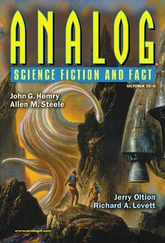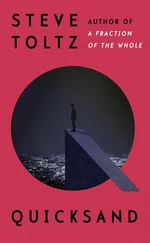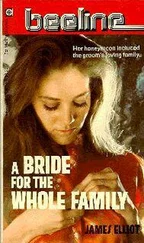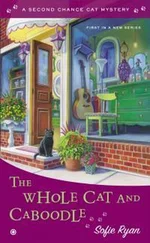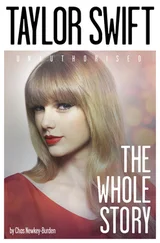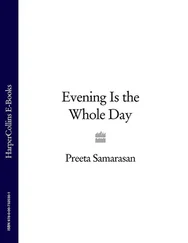One night on deck I was awoken by a voice shouting, “Why you here?” I opened my eyes to see the ship’s captain standing above us, smoking a cigarette. His face was a pulp novel I didn’t have the energy to read. “I don’t think he make it,” the captain’s voice persisted as his foot nudged Dad in the stomach. “Maybe we throw him off.”
“Maybe I throw you off,” I said.
One of the Runaways stood up behind me and shouted something to the captain in a language I didn’t recognize. The captain backed off. I turned around. The Runaway was around the same age as me, with large, beautiful eyes that were much too big for his drawn face. He had long curly hair and long curly eyelashes. Everything about him was long and curly.
“They say you’re Australian,” he said.
“That’s right.”
“I would like to take an Australian name. Can you think of one for me?”
“OK. Sure. How about…Ned.”
“Ned?”
“Ned.”
“All right. I am now Ned. Will you please call me by my new name and see if I turn around?”
“OK.”
Ned faced away from me and I called out “Shane!” as a test. He didn’t fall for it. After that I tried calling him Bob, Henry, Frederick, and Hot-pants21, but he didn’t even flinch. Then I called out “Ned!” and he spun around, grinning madly.
“Thank you,” he said politely. “May I ask you a question?”
“Shoot.”
“Why are you here? We would all like to know.”
I looked behind me. Others had emerged from the cabin below to wash their filthy lungs in the night air. Dad was sweating and feverish, and Ned held out a wet rag for my inspection.
“May I?” he asked me.
“Go ahead.”
Ned pressed the wet rag against Dad’s forehead. Dad let out a long sigh. Our fellow passengers yelled out questions to Ned, and he yelled back before waving them over. They shuffled closer, crowded around us, and wet our ears with a spattering of broken English. These strange ancillary characters, called in at the last minute to make a guest appearance in the epilogue of a man’s life, wanted to understand.
“What’s your name?” Ned asked Dad.
“I’m Martin. This is Jasper.”
“So, Martin, why do you go into Australia like this?” Ned asked.
“They don’t want me there,” Dad said weakly.
“What did you do?”
“I made some bad mistakes.”
“You kill someone?”
“No.”
“You rape someone?”
“No. It was nothing like that. It was a…financial indiscretion.” He winced. If only Dad had raped and killed. Those crimes would at least have been worth his life, and possibly mine.
Ned translated the phrase “financial indiscretion” to the others, and as if on cue a thick curtain of cloud parted, allowing the moon to illuminate their blank confusion. Watching them watching us, I wondered if they had the slightest clue what to expect in Australia. I supposed they knew they’d be living an underground existence, exploited in brothels, factories, building sites, restaurant kitchens, and by the fashion industry, who would get them sewing their fingers to the bone. But I doubted they were aware of the adolescent competition among political leaders to see who had the toughest immigration policies, the kind you wouldn’t want to meet down a dark alley. Or that public opinion was already set against them, because even if you’re running for your life you still have to wait in line, or that Australia, like everywhere, excelled in making arbitrary distinctions between people seem important.
If they knew this, there was no time to dwell on it. Surviving the journey was the only priority, and that was no easy trick. Things were getting steadily worse. Supplies were dwindling. Wind and rain battered the boat. Enormous swollen waves threatened to capsize us at every moment. There were times we could not let go of the rail or we would have been thrown overboard. We felt no closer to Australia than when we started, and it became hard to believe that our country even existed anymore, or any other country, for that matter. The ocean was growing bigger. It covered the whole earth. The sky got bigger too- it was raised even higher, stretched to breaking point. Our boat was the smallest thing in creation, and we were infinitesimal. Hunger and thirst shrank us further. The heat was a full-body fat suit we all wore together. Many were trembling with fever. We spotted land once or twice, and I screamed in the captain’s eardrum, “Let’s pull in there, for Chrissakes!”
“That’s not Australia.”
“Who cares? It’s land! Dry land! We won’t drown there!”
We pushed on, cutting a foamy trail through an ocean bubbling with hostile intentions.
It’s surprising just how placid the dying human animal can be in such a circus. I never would’ve believed it. I thought we’d be tearing each other’s flesh off, drinking the blood of our brothers, but it wasn’t like that at all. Everyone was too tired. Sure, there was crying and a fair amount of bitter frustration, but it was sad and quiet bitter frustration. We were tiny, shrunken creatures, too frail for any kind of serious protest.
Most of the time Dad lay motionless on deck, looking like a scary stuffed toy you give to a child on Halloween.
I stroked his forehead gently, but he summoned up just enough energy to shrug me off.
“I’m dying,” he said bitterly.
“Another couple of days and I’ll be dying too,” I said, to cheer him up.
“I’m sorry about that. I told you not to come,” he said, knowing full well he hadn’t.
Dad was trying to act remorseful for having selfishly aligned my fate to his. But I knew better. I knew something he would never admit- that he had never fully shaken off his old, sick delusion that I was the premature reincarnation of his still living self- and now he thought that if I died, he might live on.
“Jasper, I’m dying,” he said again.
“Jesus Christ, Dad! Look around! Everyone here is dying! We’re all going to die!”
That burned him up. He was furious that his death was not being regarded as a tragic isolated spectacle. To die among the dying, as a number, was really a thorn in his side. Mostly, though, it was the constant praying to God that was getting under his skin. “I wish these idiots would shut up,” he said.
“These are good people, Dad. We should be proud to drown among them.”
Nonsense. I was talking pure nonsense. But Dad was determined to leave the earth in a belligerent state, and there was nothing I could do to dissuade him. Even with his life packed and its passport stamped, he rejected the religious world for the umpteenth time.
We were the only ones not praying, and the Runaways’ positivism really put Dad and me to shame. They still had the feeling that lovely things were stirring in the air. They were giddy in their ecstatic flight, blissful because their gods were not the inner kind, who can’t really help you out in a tangible, nonephemeral crisis like a sinking boat; their gods were old-fashioned, the kind who direct the whole of nature to the desires of the individual. What a lucky break! Their gods actually listened to people, and sometimes intervened. Their gods dealt out personal favors! It’s Who you know! That’s why their private experience had none of the cold terror of ours: we envisaged no big thumb and forefinger descending from the heavens to pluck us out of harm’s way.
I tended to Dad in a sort of trance. In the dark he laid out countless ideas about life and how to live it. They were slightly more confused and puerile than his usual diatribes, though, and I realized that when you’re falling, the only thing you have to hold on to is yourself. When he talked, I pretended to listen. If he wanted to sleep, I slept too. When Dad moaned, I gave him painkillers. There wasn’t anything else to do. He was suffering, his far-off eyes farther off than ever before. I knew he was thinking of Caroline. “Martin Dean- what a fool he was!” he said. It gave him some comfort to talk about himself in the third-person past tense.
Читать дальше

